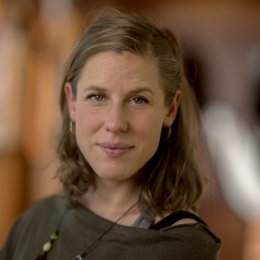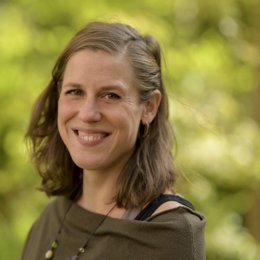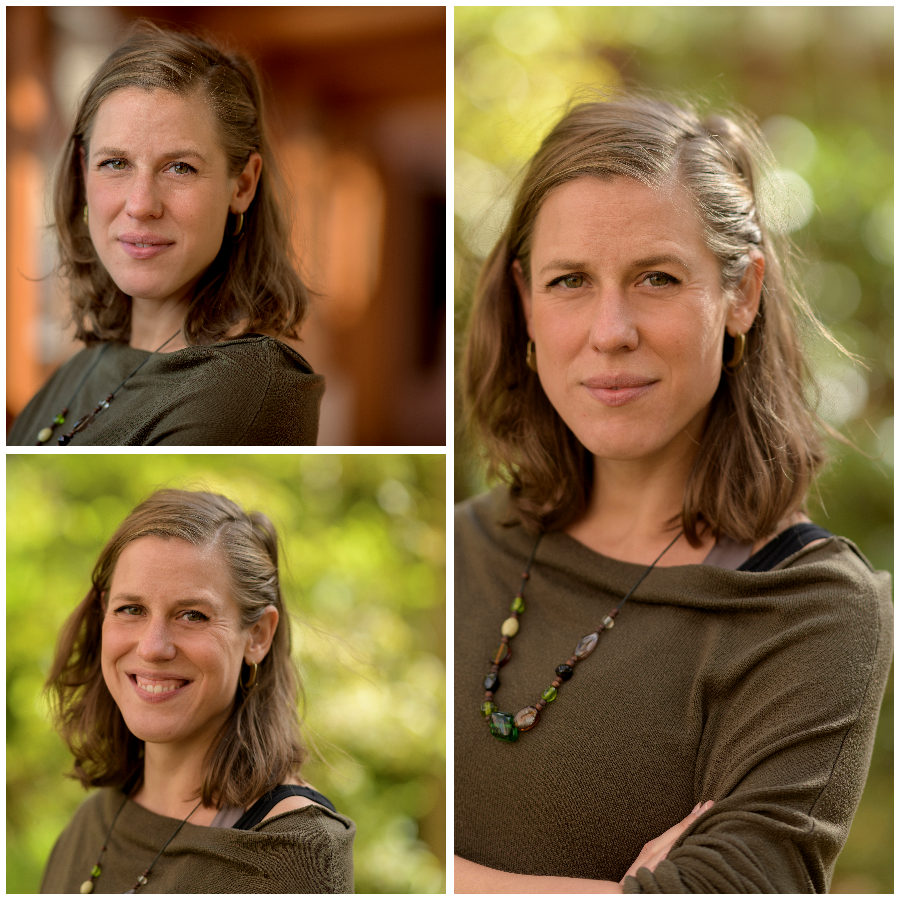water, sanitation, hygiene and disease prevention
Carmen Anthonj, Assistant Professor of GeoHealth at the Faculty of Geo-Information Science and Earth Observation, is an expert on GeoHealth which links health and disease in space and time. "I am studying where and when diseases occur, contextualizing diseases with environmental and social factors."
More specifically, Anthonj focuses on the links between water and health issues. ‘I mainly look at topics that are connected with the United Nations Sustainable Development Goal #6: access to water and sanitation for all. I look at how water, sanitation and hygiene infrastructure and behaviors can promote human health and how they can impair human health,’ explains the scientist. ‘I look at how WASH - water, sanitation and hygiene - can prevent water-related infectious diseases. I study how the WASH situation differs in different regions and among different populations in low-, middle- and high-income countries. Likewise, I look at the impact that water has on the accessibility of health services, e.g. in times of flooding.’
The researcher doesn’t only focus on infrastructure, but also on risk perceptions and behaviors related to sanitation, hygiene and health. ‘How do people behave to promote their health (or not) and why? Why do some people practice unhealthy behaviour despite being aware of risks? What is cultural context of health and disease? And how can such knowledge used to improve public health planning and decision making? COVID-19 has shown how crucial this type of research really is,’ states Anthonj. ‘I also look at vector-borne diseases, so for example mosquito-borne diseases. Can we reduce their spread if we cover water containers in our home environments, for instance? This is not only relevant in the Global South, but even in Central Europe we see e.g. the tiger mosquito breed, and potentially spread diseases. These are the types of questions I try to answer with my research. My work is very broad, but essentially it covers anything that links water, sanitation, hygiene, health services and disease prevention.’
Anthonj’s work is very science-policy oriented and based on a global health problem that needs to be addressed. As she says, she wants her research to have a real impact on the world. She regularly collaborates with international organizations, regional and national governments and, above all, the local communities themselves. ‘I have been living in rural and remote communities for months just to understand what the challenges are. Local perspectives are often very disconnected from the decisions authorities take. Part of my research is to translate those perspectives and bring them together.’
The scientist doesn’t only aim to bring together various stakeholders in order to find a solution, she is also used to connecting disciplines. ‘Water and health require a very cross-cutting and multidisciplinary kind of thinking,’ she says. ‘The topic of water is so simple and so complex at the same time. The problems related to it are usually so easily fixable. We usually understand exactly what the problem is – perhaps it’s deficient infrastructure or insufficient distribution of resources -, yet the problems don’t get fixed. What's holding us back? The challenges might be the same in many different parts of the world, but the solutions are highly context-specific. You cannot apply the same solution everywhere. All of this fascinates me.’
Carmen Anthonj is determined to ‘push water and health higher on the agenda’. ‘I want the research to have an impact in the real world, not on paper. Big part of my work is dialogue, bringing people together. Part of that is getting out of this ivory tower many scientists sit in. I want people to understand what we are working on. One of my goals is to reduce this science-society gap by science communication. I believe that, as scientists, we should be visible and have our research visible, not hidden behind paywalls or language nobody understands.’
Education
As a multidisciplinary researcher herself, Anthonj understands the value of bringing together different fields and perspectives. In her courses on GeoHealth, she, therefore, aims to set focus on teamwork and exchange of ideas. ‘I encourage students to master their expertise, but also to fill in knowledge gaps by reaching out to their colleagues. I try to teach my students that we can see a problem and also the solution from different perspectives. It is about collaboration and understanding the different disciplinary approaches to the same challenge. We should not only be studying to obtain a degree but to really understand the challenge and how to fix it together.’
About Carmen Anthonj
Carmen Anthonj as an Assistant Professor of GeoHealth in the Department of Earth Observation Science at the Faculty of Geo-Information Science and Earth Observation (ITC) of the University of Twente. Prior to joining ITC, she conducted postdoctoral studies at the Water Institute at the Gillings School of Global Public Health at the University of North Carolina, US. She gained her PhD at the GeoHealth Centre at the Institute for Hygiene and Public Health, University of Bonn, Germany. She has conducted consulting projects on water and health with the United Nations (UNICEF, WHO), the World Bank and many other organisations in Sub-Saharan Africa, Latin America, South Asia and the South Pacific.
Press Photos
These press photos can be used with no copyright restrictions, please include the name of the photographer, Fokke Eenhoorn.
Read more about Carmen Anthonj here.



